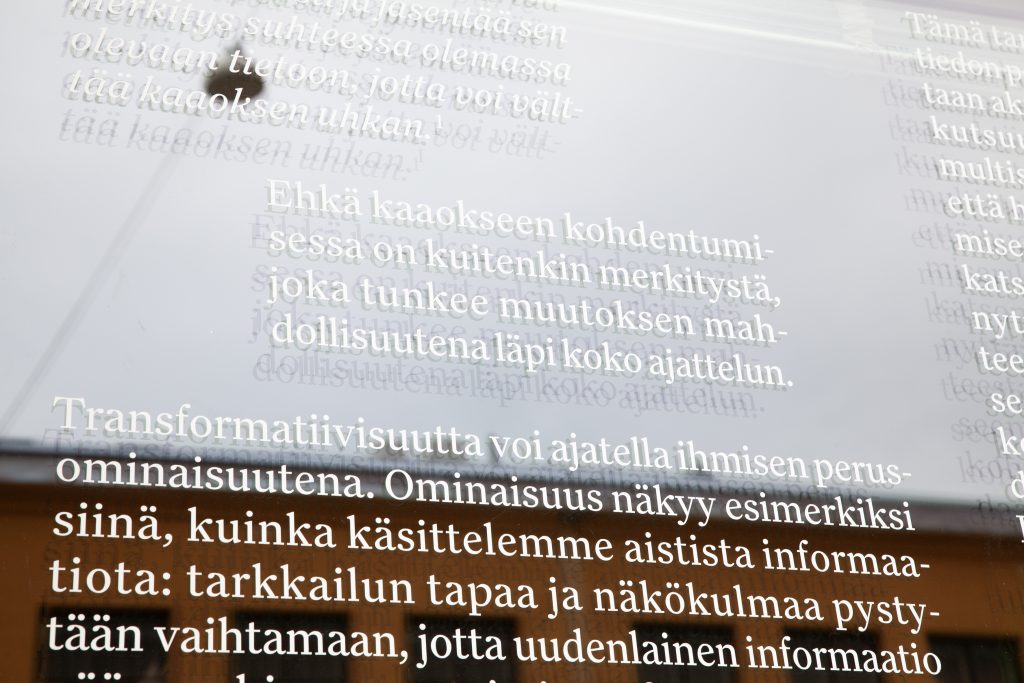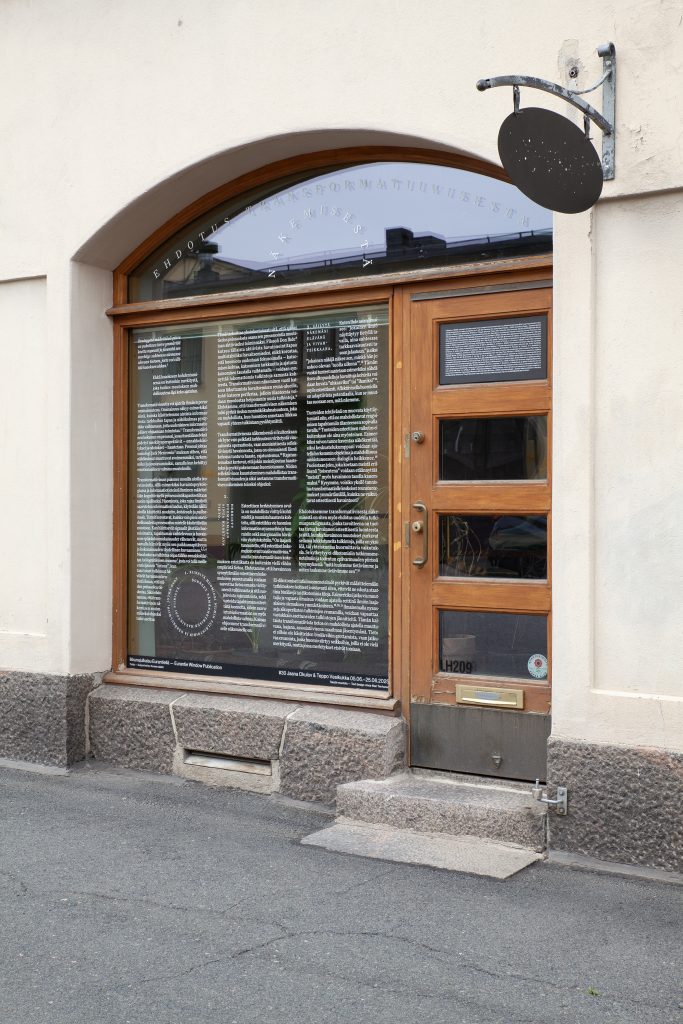Transformative technologies
2024–
Jaana Okulov, Teppo Vesikukka, Tero Heikkinen, Tuomo Rainio, Yu Tian
The Transformative Technologies project explores transformative states as psychological and social potentialities,
and studies the aesthetic traces they leave on cognition. In our research, transformative technologies are defined as future perceptual tools that support human transformative capacity. These include reflective machine learning models that aid in social situations and augmented reality applications designed to expand perceptual capacities. Perception is not a static state but a dynamic skill that, when cultivated, enriches an individual’s experience of the world. The project is grounded in postphenomenology, which offers a framework for investigating how technological mediations help constitute specific realities and subjectivities and arising from that to develop transformative technologies in relation to their ethical relevance.
Despite the recognized role of perception in shaping individual, social, and political thought, systematic empirical research in this interdisciplinary domain remains limited. The project addresses this gap by exploring five critical questions in multidisciplinary experimental and artistic research settings: 1) What kinds of quantitative, qualitative, and artistic research methods should be employed to study transformative states and perception; 2) What aesthetic and attentional shifts in perception are central to transformative states and the development of transformative technologies; 3) What kinds of perceptual technologies best support cognitive diversity and personal integrity; 4) How do transformative states unfold at individual, interpersonal, and societal levels; 5) How the spaces and practices of experiencing and studying art can be utilized in studying transformative states also in other research fields.
By addressing these questions, the project lays the foundation for a collaborative network and a center that brings together researchers, artists, and developers dedicated to advancing ethically sustainable transformative technologies that respect societal diversity. Our current collaborations involve the following institutions: the Universities of Jyväskylä, Tampere, Turku, and Uniarts, VTT, Turku EyeLabs, and M-Cult.
Our first research output: Proposition on Transformative Perception published in Eurantie Window, 2025. Writers: Okulov & Vesikukka, design: Anna-Mari Tenhunen

